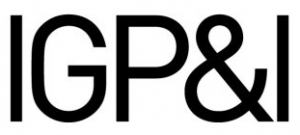Published 29 July 2025
On 18 July 2025, the EU adopted the 18th sanctions package against Russia. These measures can be found in amended Regulation (EU) 833/2014 and Regulation (EU) 269/2014. The EU Commission has issued a press release regarding these new measures which can be found here and FAQs which can be found here.
They can be summarised as follows:
New vessel and asset freeze listings
105 vessels have been banned from accessing EU ports or receiving maritime or other services for being part of the Russian “shadow fleet” (Article 3s of EU Regulation 833/2014). The EU has removed three LNG (liquified natural gas) tankers operated by Mitsui O.S.K. Lines from this list after receiving assurances that they will not transport gas from the Russian Yamal and Arctic 2 projects.
14 individuals and 41 entities have been designated to the EU sanctions list (and therefore subject to an asset freeze), including those associated with Coral Energy/2Rivers Group (which is already subject to UK asset freeze restrictions), and Nayara Energy Limited (an Indian refinery in which Rosneft has a major shareholding).
Oil Price Cap
The EU has reduced the relevant price cap for Russian origin crude oil (CN Code 2709) from USD 60 to USD 47.60 per barrel, which will take effect on 3 September 2025. Contracts entered into on or after 20 July 2025 may rely upon the USD 60 per barrel price cap, but they must be wound down by 2 September 2025. Contracts entered into before 20 July 2025 must be concluded by 18 October 2025.
The EU Commission will be monitoring Russian crude oil prices on the basis of price assessments provided by ‘authorised reporting agencies’ to ensure that there is a dynamic mechanism of updating the oil price cap. The new system will ensure that the price cap is always 15% lower than the average market price for Urals crude (which is the price benchmark for Russian oil exports) in the previous period of six months. If the newly calculated price varies by 5% or less from the current applicable price cap, the price cap shall not be amended. The EU Commission will publish a notice of the relevant average market price and amend the price cap on 15 January 2026 and every six months thereafter. The amended price cap will apply as of the first day of the month following the month of entry of the relevant implementing regulation.
The U.K. has also reduced the price cap for Russian origin crude oil to USD 47.60 per barrel but it comes into effect at 23:01 (BST) on Tuesday, 2 September 2025. Additionally, for any trades with an effective date of contract before this date, and which are compliant with the existing price cap of USD 60 per barrel, there will be a wind-down period of 45 days, ending at 23:01 (BST), Friday, 17 October 2025. The U.K. has issued FAQs regarding the reduced price cap which can be found here (from FAQ no. 154 onwards under ‘Russian Oil Services Ban’).
The US which is a party to the G7 price cap scheme has not reduced the price of Russian origin crude oil.
The price cap for petroleum products (CN Code 2710) has not been amended and remains at USD 100 per barrel for Premium to Crude products and USD 45 per barrel for Discount to Crude products.
Trade
From 21 January 2026 it is prohibited to import or transport into the EU (or provide related insurance) in respect of refined petroleum products processed from Russian origin crude oil in third countries (Article 3ma of EU Regulation 833/2014). Exemptions apply to imports from Norway, the UK, the US, Canada and Switzerland. Refined petroleum products processed in third countries (apart from those listed above where exemptions apply) will require evidence of the country of origin of the crude oil for import into the EU.
The list of goods that are subject to restrictions on the grounds that they could contribute to the enhancement of Russian industrial capacities has been expanded (Article 3k of EU Regulation 833/2014). These restrictions (which are subject to wind-down periods) prohibit the transport of these goods to Russia (and related insurance), whether or not they originate in the EU. It includes goods which fall within the following (CN) commodity codes:
2613 Molybdenum ores and concentrates
2707 Oils and other products of the distillation of high temperature coal tar; similar products in which the weight of the aromatic constituents exceeds that of the non-aromatic constituents
2801 Fluorine, chlorine, bromine and iodine
2802 Sulphur, sublimed or precipitated; colloidal sulphur
2803 Carbon (carbon blacks and other forms of carbon not elsewhere specified or included)
2804 Hydrogen, rare gases and other non-metals
2817 Zinc oxide; zinc peroxide
2821 Iron oxides and hydroxides; earth colours containing 70% or more by weight of combined iron evaluated as Fe2O3
2822 Cobalt oxides and hydroxides; commercial cobalt oxides
2823 Titanium oxides
7315 Chain and parts thereof, of iron or steel
7326 Other articles of iron or steel
Ex 74 Copper and articles thereof, except CN code 7401 00 00
76 Aluminium and articles thereof
Measures have been introduced to address the risk of circumvention of exports of advanced technology items via third countries. An authorisation shall be required for the export of goods and technology to any third country which might contribute to Russia’s military and technological enhancement (Article 2a of EU Regulation 833/2014), if the exporter has been informed by the competent authority of the EU Member State where they are resident that there is reasonable cause to suspect that the end destination of the items may be Russia or the end-use may be for Russian entities.
Nord Stream
Transactions related to Russia's Nord Stream 1 and Nord Stream 2 gas pipelines are banned. This includes the provision of goods or services with regard to the completion, operation, maintenance or use of the pipelines.
Transactions ban
The EU has formalised an FAQ in respect of the transaction ban against listed ports which was introduced in the EU’s 16th sanctions package, by creating a new exception in respect of non-Russian coal. It provides that the transaction ban does not apply to the transport of coal (falling under CN code 2701) from these ports if it originates in a third country and is only being loaded in, departing from or transiting through Russia provided that both the origin and the owner of the goods are non-Russian (Article 5ae(3)(g) of EU Regulation 833/2014). Further details regarding the transaction ban and the EU FAQ can be found in the club Circular issued in March 2025 which is available here:
Financial Sector
In the banking sector, 22 additional Russian banks are subject to a full transaction ban which will take effect from 9 August 2025, including Bank Saint Petersburg, Yandex Bank, Metcom Bank and Bank Zenit (among others). A new transaction ban also targets the Russian Direct Investment Fund (the Russian sovereign wealth fund) and its affiliates.
Belarus
The EU has imposed new measures against Belarus which mirror those imposed against Russia. It includes export restrictions on sensitive goods and technologies, as well as on goods which could contribute to the enhancement of Belarusian industrial capacities. Details can be found in amended Regulation (EC) 265/2006 and Regulation 2025/1472.
UK sanctions
On 21 July 2025 the UK designated 135 tankers which form part of Russia’s “shadow fleet” to the UK sanctions list. It has also designated Intershipping Services LLC (which operates the flag registry of Gabon) for registering shadow fleet vessels in the Gabon registry and Litasco Middle East DMCC, which is the international trading arm of Russian energy company Lukoil. It should also be noted that the UK regulator, OFSI, has issued General Licence (Wind Down of Positions Involving Litasco Middle East DMCC INT/2025/6488808: Litasco_Wind_Down_GL.pdf) which permits the wind down of transactions with Litasco DMCC until expiry of the licence at 23:59 on 18 September 2025.
Members are reminded that cover is not available for any trade that breaches applicable sanctions. Members are advised that they should conduct thorough due diligence throughout the trade on the parties, cargoes, vessels, and other service providers that are or may be involved before they engage in any trade with a high sanctions risk. Finally, Members are reminded to keep records of their due diligence investigations and findings.
All Clubs in the International Group have issued a similarly worded circular.
If you have any questions to the above, please contact Ingvild Høgenes Nilsen, Gard, Arendal.
Yours faithfully, GARD AS
Rolf Thore Roppestad Chief Executive Officer


